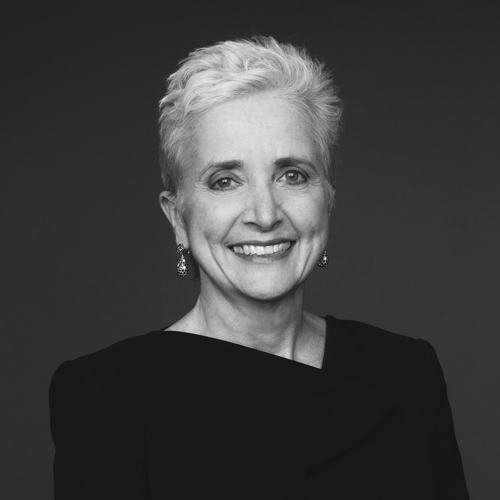As senior vice president and general counsel of Kaman Corporation, Shawn Lisle gets a perk not enjoyed by GCs at most other companies.
“The technology here is amazing,” Lisle says. He’s talking about aircraft, as Kaman was founded in 1945 as a helicopter manufacturer. It’s since diversified into other areas of aerospace, defense, specialty bearings, and distribution, but the helicopters still get Lisle noticeably excited, especially the K-MAX.
“The K-MAX is a highly reliable, cost-effective, and powerful lifting helicopter that can be flown either with or without a pilot,” Lisle explains. “[It] was invented by our founder, Charles Kaman.”
Because he is stationed at Kaman’s headquarters in Bloomfield, Connecticut, Lisle regularly gets to witness the K-MAX in action. “They fly over our buildings,” he says. “We hear them, we see them. It’s an enormous sense of pride for all of us to be a part of a company that makes such an impressive and important machine.”
Designed for multiple types of military and civilian missions, the K-MAX plays a vital role in military replenishment operations, with civilian uses that include firefighting, logging, construction, emergency response, and vertical replenishment. That Lisle would end up at an aerospace company manufacturing military aircraft makes sense when considering his own military career, even if it came as somewhat of a surprise to himself.
“While I was in my second year of law school, I was walking through the lobby where a career fair was going on,” he recalls. “I hadn’t planned to attend. I just happened to be walking through and made eye contact with a navy lieutenant, and we started chatting. He told me about the navy Judge Advocate General’s Corps (JAG) program and the immediate hands-on experience that JAG officers receive. I was intrigued and started to look into it, and the next thing I knew, I was taking a physical and ultimately offered a commission. My first legal job was not only being a lawyer, but also a naval officer. The dual role provided me with immediate responsibilities, challenges, and trial experience. It was a privilege to have served in the world’s most powerful navy.”
His first trial was equally unconventional, held not in a courthouse, but aboard the USS Constellation, a Kitty Hawk-class supercarrier, as it was underway. Even more unconventional was the time the trial started.
“We were landing [on the carrier] just as it was turning dusk,” Lisle recalls. “We got off the aircraft, and no sooner after arriving at the carrier’s small legal office, a member of the staff judge advocate said, ‘We’ll get your clients up here and convene the administrative discharge board hearings in about an hour-and-a-half.’ I may have been a new lawyer, but I was certain that I needed more than an hour-and-a-half, so I protested. They said, ‘That’s fine, lieutenant. We have a captive audience here. Take the time that you need to do your interviews, but we will convene the boards this evening.’ They weren’t bluffing. You learn to be efficient under those conditions, so I wasted no time interviewing clients and witnesses and crafting my arguments. The first hearing commenced around 11:30 that night, and that was my first case. It was quite memorable.”
Lisle’s military background was appealing to an aerospace and defense company (and vice versa) for obvious reasons. It wasn’t just a shared affinity for aircraft, though, that made him a natural fit for Kaman, but also his time in the navy that equipped him with a leadership skill set that’s been crucial to the company’s growth. Since arriving there five years ago, he’s helped to lead fifteen acquisitions and divestitures, which most recently included the acquisition of an aerospace aftermarket parts company in Arizona that designs and supplies replacement parts for helicopters and fixed-wing aircraft. He also helped acquire a high-precision specialty bearings company in Germany that expanded Kaman’s engineered-products portfolio. He chalks up these advancements to his naval career and—just as important—a shared vision among his colleagues.
“You get an enormous sense of team focus and purpose in the navy,” Lisle says. “That’s something you can carry over to your civilian career, as well as pride in working hard and having a do whatever it takes attitude. As an officer, you also learn to take care of your people. That doesn’t just mean financially or on an annual performance review or something like that. You really take an interest in folks by learning and caring about them—caring about their safety, professional development, and personal life; showing them respect, dignity, and appreciation. If they are motivated and achieve, then the organization will achieve.”
Lisle practices and encourages these values among the eleven-member team of attorneys and paraprofessionals. Although that’s a relatively small group considering Kaman’s steady growth to about $1.8 billion in revenue in 2016, Lisle says the group’s practice is sophisticated and equally efficient.
“Although we are a small legal department, we deal with the same issues faced by much larger public companies with multinational manufacturing operations,” he says. “I know that because I’ve been part of large companies with sizable legal teams. The difference really comes down to scale and resources.”
The variety of the practice and the close connections formed within the small legal team are among benefits that Lisle points out: “As the general counsel, I remain very much an active practicing lawyer, in addition to my duties as a manager and senior leader. You become a generalist out of necessity and roll your sleeves up to get the work done. Our team handles the vast majority of work internally, but certain situations dictate that we partner with our cadre of trusted outside law firms. When we work with external counsel, it’s not a hand-off. Kaman lawyers stay actively involved as an integral part of the team. We know the business, the issues, and the people, which adds value and efficiency.”
Keeping a lean crew also means Lisle and his team are able to regularly get in the same room to hash out legal decisions—one of his favorite parts of the workday.
“We’re so different in terms of personalities, viewpoints, and experiences. That’s what makes the team work so well,” he says. “Occasionally, the debates get passionate, and there’s nothing wrong with that. It’s healthy and productive. It shows that people care and want to get to the best solution possible. If we can get all viewpoints on the table, then we can make better decisions. That only happens if people feel safe to speak up and know that their opinions are valued and expected. I don’t want us to all think alike.”
Unsurprisingly, he once again ties this philosophy back to the military. “There’s an old saying attributable to George Patton: ‘If everybody is thinking alike, then somebody
isn’t thinking.’”

